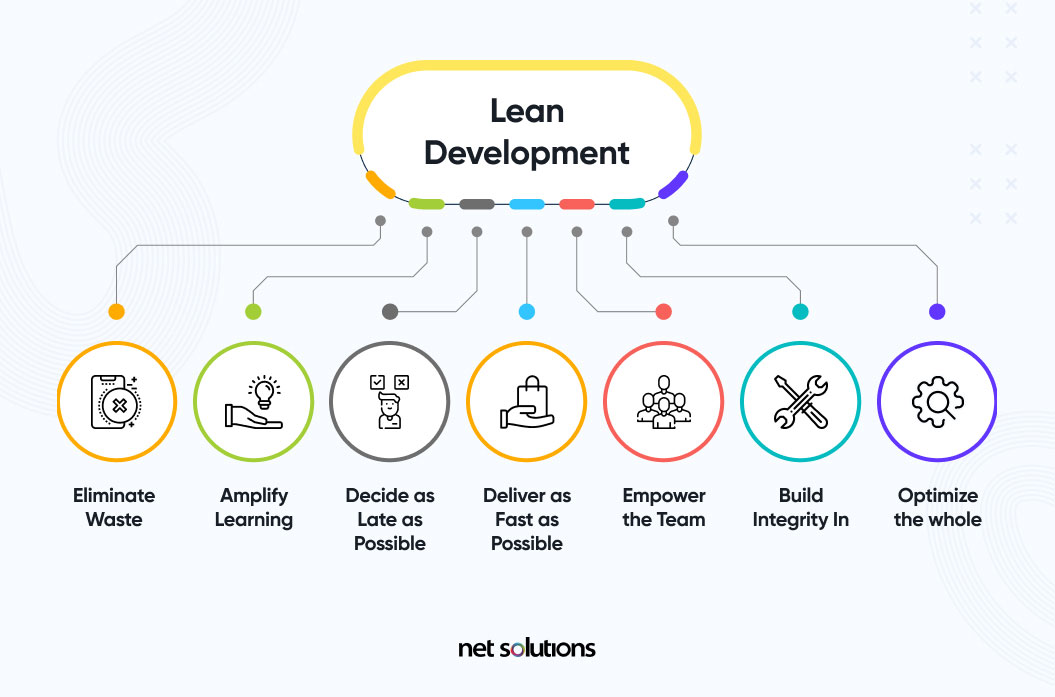Lean Development
What is Lean Development?
Definition:
Lean Development is an iterative and incremental approach to software development that emphasizes efficiency, simplicity, and waste reduction. Rooted in principles derived from lean manufacturing and agile methodologies, lean development focuses on delivering value to customers by continuously improving processes and minimizing unnecessary work. The goal is to create a streamlined development workflow that responds quickly to changing requirements while ensuring the highest quality of the product.
Analogy:
Consider lean development as the process of sculpting a masterpiece from a block of marble. Instead of creating a detailed plan and chiseling away at the entire block at once, lean development involves iterative carving, refining the sculpture gradually based on continuous feedback and learning.
Further Description:
Lean Development comprises key principles and practices:
Value Stream Mapping: Identifying and analyzing the entire development process to eliminate activities that do not add value to the customer. This includes mapping the flow of tasks from ideation to product delivery.
Continuous Improvement (Kaizen): Encouraging a culture of continuous improvement where teams regularly reflect on their processes, identify inefficiencies, and implement changes to enhance productivity and product quality.
Waste Elimination: Eliminating waste in the development process, including unnecessary tasks, delays, and defects. Lean development aims to maximize efficiency by focusing on value-adding activities.
Just-In-Time (JIT) Production: Delivering features and components just in time for their use, minimizing inventory and reducing the likelihood of errors or outdated solutions.
Pull System: Creating a pull-based system where tasks are pulled only when there is a demand for them, preventing overproduction and reducing unnecessary work.
Empowered Teams: Empowering cross-functional teams to make decisions and collaborate effectively. Lean development emphasizes self-organizing teams that can adapt quickly to changing requirements.
Customer Feedback: Regularly seeking and incorporating customer feedback throughout the development process to ensure that the product meets customer needs and expectations.
Why is Lean Development Important?
Efficiency and Speed: Lean development streamlines processes, reduces bottlenecks, and emphasizes quick response to changing requirements, resulting in faster time-to-market.
Cost Reduction: By eliminating waste and focusing on value-adding activities, lean development helps in reducing development costs and maximizing the return on investment.
Quality Improvement: Continuous improvement and waste elimination contribute to higher product quality and reliability, leading to increased customer satisfaction.
Adaptability: Lean development’s iterative nature allows teams to adapt to changing requirements, market conditions, and customer feedback more effectively.
Team Morale: Empowered teams and a culture of continuous improvement contribute to higher team morale, engagement, and a sense of ownership.
Examples and Usage:
Toyota Production System (TPS): The concept of lean development originated from the Toyota Production System. Toyota’s approach to manufacturing has influenced various industries, including software development.
Spotify: Spotify uses a lean and agile approach to software development, organizing teams into squads, tribes, and guilds. This structure allows them to respond quickly to market changes and continuously improve their products.
Lean Startup Methodology: While not strictly a development methodology, the Lean Startup approach emphasizes lean principles in the context of entrepreneurship, encouraging startups to build a minimum viable product (MVP) and iterate based on customer feedback.
Key Takeaways:
- Identify and analyze the entire development process to eliminate non-value-adding activities.
- Foster a culture of continuous improvement, where teams regularly reflect on processes and make adjustments.
- Eliminate waste in the development process, focusing on value-adding activities and efficiency.
- Deliver features just in time for their use, minimizing inventory and reducing the likelihood of errors.
- Empower cross-functional teams to make decisions and collaborate effectively for quicker adaptation.





